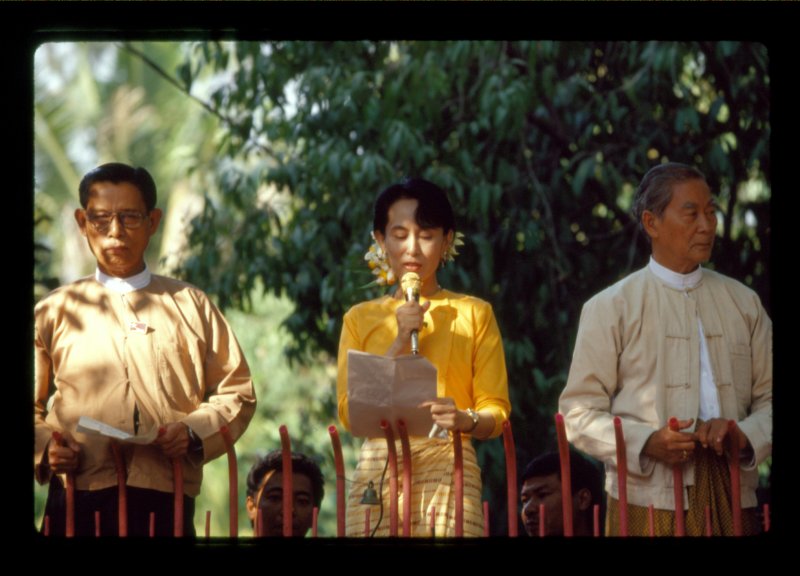Under Myanmar's former military rule, reports about democracy advocate Aung Sang Suu Kyi (pictured) were not allowed. (UPI Photo) |
License Photo
YANGON, Myanmar, Oct. 11 (UPI) -- The head of Myanmar's powerful state censorship body has called for more press freedom.
Tint Swe, director of the Press Scrutiny and Registration Department, told Radio Free Asia in an interview that he could see his own department, set up around 40 years ago, being disbanded as Myanmar moves toward greater democracy.
"Press censorship is non-existent in most other countries as well as among our neighbors," he said. "As it isn't in harmony with democratic practices, press censorship should be abolished in the near future," he said.
But, he also said the media should accept press freedom with "responsibilities" and practice self-censor without the government requiring editors to hand over their publications to his department for approval which has been the case for decades.
It is just a matter of time before all publications are "free from any kind of censorship," he said. More private groups will be allowed to establish daily newspapers under a draft media law before Parliament.
Under military rule, which ended with last November's election of a nominally civilian government, reports about democracy advocate Aung Sang Suu Kyi -- who was under house arrest -- weren't allowed, he said.
He acknowledged that last month the Myanmar magazine "The Messenger" was suspended for two weeks for carrying a full cover picture of Suu Kyi.
But he said his department has eased some restrictions, including publishing reports about Suu Kyi.
"There are no restrictions now on coverage for Aung San Suu Kyi's activities and more freedom is expected in the near future as the country undergoes democratic change," he said.
His comments come after a report last month by the Committee to Protect Journalists, which has headquarters in New York, in which a magazine editor said state censorship continues to be an issue.
He was stopped from publishing articles on the volatility in fuel prices, land purchases by Chinese investors around the city of Mandalay and the shortage of fresh water near a southern coast development.
His publication was banned this year for two weeks immediately after publishing without the censors' approval an article about the price of SIM cards.
"We are pushing the limits as much as we can," the editor told CPJ during a recent trip to Bangkok. He successfully ran a series on farmers facing high debts.
But censorship remains arbitrary, intensive and highly restrictive, he said. "It's like fighting with a spear while on horseback to get news published."
A CPJ analyst said at least 14 journalists and media support workers are in jail and the government has made little progress on press freedom. Former senior junta leader and now President Thein Sein and his elected regime of mostly retired military officers continue to systematically harass and sanction journalists, particularly those who report undercover for exile-run media groups.
"Many former high-ranking generals have merely swapped their army khakis for civilian business suits while retaining their top government posts and authoritarian ways," CPJ said.
CPJ praised Myanmar's exile-run media groups, the Democratic Voice of Burma in Norway, Mizzima news agency in Kolkata, India, and The Irrawaddy news Web site in Chiang Mai, Thailand, for "filling the domestic news gap caused by pervasive state censorship."





